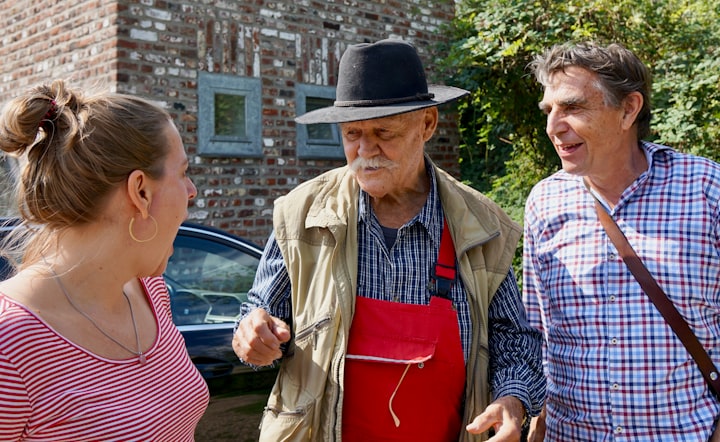
Today it seems the majority of our political conversations quickly devolve into name-calling and character assassination rather than being the productive exchange of opinions they should be. These ad hominem attacks, where one person attacks the content of another's character rather than the content of her argument, create animosity and lessen the chances either person learns anything from the exchange.
To fix our politics and heal the divisiveness in this country, we should start with the language we use when speaking to one another. Our language determines whether our interaction will be an argument or dialogue, destructive or productive, toxic or healthy.
Be Nice
Civility is the basis of civilization, and civilization consists of citizens with disparate viewpoints. We must be able to discuss our disagreements without becoming disagreeable to live among one another.
The first step is to avoid name-calling and profanity. This seems a low bar to cross, but it's one being tripped over even in the halls of Congress. "Socialist", "cuck", "libtard", "fascist", "stormtrumper", et. al., are all out of bounds. Vulgarity should be avoided since it raises the temperature of a conversation. With everyone's defensiveness at a minimum, we can focus on the facts.
If you're discussing policy disagreements, describe why you think they're a bad idea. Present evidence to show how those decisions have turned out poorly in the past. Discuss how the policies don't solve the problem they're supposed to address. Talk about the unintended consequences that are likely to arise if they're implemented.
If you're in a disagreement about events, present primary sources supporting your understanding of them, and have your partner do the same. To have a productive, reality-based conversation, there should be one set of facts. How we interpret their consequences is where we will differ.
Whether discussing events or policies, focus on the facts, not the person stating them. One person doesn't have to agree with another's point of view to understand it, but he should be able to hear it. As soon as one person attacks another, both stop listening. Civility is the art of saying things in a way that you will be heard even by those who disagree with you.
Be Precise
Language and logic are closely intertwined. It is difficult to have one without the other. This is why the precision of your language matters. You don't have to use fifty-cent words and parse your language as if you're in a debate, but you must be clear in what you say. This is particularly true today when so much of our communication occurs publicly in writing that is difficult to retract. (Think of the last Facebook or Twitter post you wish you could take back...)
I'll use a famous example of poor punctuation and capitalization to illustrate. There is a big difference between "I helped my neighbor, Jack, off the horse" and "I helped my neighbor jack off the horse". The former indicates the speaker helped his neighbor dismount his steed. The latter is more about helping the horse have a better day. Unless the speaker is a veterinarian, the first is probably more accurate.
While civility will help you be heard, precision ensures you're understood.
Be Concise
Epictetus famously said: "We have two ears and one mouth so that we can listen twice as much as we speak." No one wants to listen to someone else's rambling manifesto, regardless of her interest in its content or her ability to eviscerate its logic. It gets old, and it gets dry. Say what you need to say to communicate your understanding. Then, provide the other person the same courtesy they gave you, and listen.
Our goal should be dialogue, and dialogue's goal is mutual understanding. Dialogue participants listen to one another empathetically. They suspend judgment and ask questions. No one participating in dialogue is attempting to persuade the other, only to understand her point of view.
Concision allows you to present your point of view in a compact format more likely to be heard. It also allows your fellow speaker the opportunity to communicate his viewpoint.
Finally
We need to talk to one another. Just as importantly, we need to listen. Be prepared to not like the answers. It's okay to be befuddled that someone could hold a particular view, but you should understand why they do. Understanding others' motives and values helps you be a better citizen and a more empathetic person. It's the key to living within a democratic society.
(For a fuller discussion of what it means to practice dialogue, I highly recommend the Practicing Dialogue course on Wikiversity.)
About the Creator
Matt V
Matt is a Navy veteran, freight brokerage survivor, and software engineer, who loves telling tall tales and sharing lessons learned from a life spent never quite fitting in.






Comments
There are no comments for this story
Be the first to respond and start the conversation.